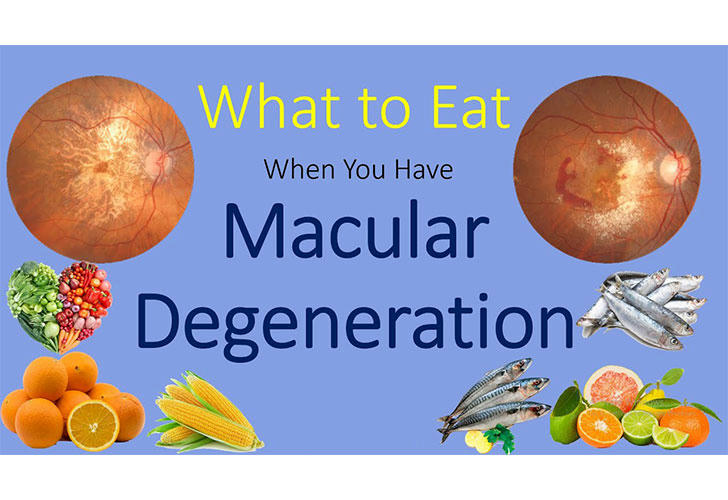What should patients with macular degeneration eat?
Macular degeneration, particularly age-related macular degeneration (AMD), is a leading cause of vision loss in older adults. While there is no cure for this condition, certain dietary choices can help slow its progression and support overall eye health. This article outlines the best foods for patients with macular degeneration, along with recommended products to enhance your diet.

Key Nutrients for Eye Health
1. Lutein and Zeaxanthin: These carotenoids are found in high concentrations in the macula and help filter harmful blue light.
2. Omega-3 Fatty Acids: Essential for maintaining retinal health and reducing inflammation.
3. Vitamins A, C, and E: Antioxidants that protect the eyes from oxidative stress.
4. Zinc: Important for maintaining the health of the retina and may reduce the risk of AMD progression.
Recommended Foods
1. Leafy Green Vegetables
Examples: Spinach, kale, collard greens
Benefits: High in lutein and zeaxanthin, which can help increase pigment density in the macula and protect against AMD.
2. Fatty Fish
Examples: Salmon, mackerel, sardines
Benefits: Rich in omega-3 fatty acids (EPA and DHA), which support retinal health and may reduce the risk of AMD.
3. Eggs
Benefits: A great source of lutein and zeaxanthin, as well as vitamins A and D. The yolk contains essential nutrients that may help protect against cataracts and AMD.
4. Fruits High in Vitamin C
Examples: Oranges, strawberries, kiwi
Benefits: Vitamin C is an antioxidant that helps protect the eyes from oxidative damage.
5. Nuts and Seeds
Examples: Walnuts, almonds, flaxseeds
Benefits: Provide healthy fats, vitamin E, and omega-3 fatty acids that are beneficial for eye health.
6. Colorful Vegetables
Examples: Carrots (rich in beta-carotene), bell peppers (especially orange ones)
Benefits: Rich in antioxidants that support overall eye health.
7. Whole Grains
Examples: Brown rice, quinoa, whole grain bread
Benefits: Provide fiber and essential nutrients while helping maintain stable blood sugar levels.
8. Goji Berries
Benefits: High in antioxidants, including zeaxanthin, which may help protect against AMD.
9. Sweet Potatoes
Benefits: Loaded with beta-carotene, which converts to vitamin A in the body—a critical nutrient for eye health.
10. Garlic
Benefits: Contains sulfur compounds that may help protect the lens of the eye.
Foods to Avoid
1. Spicy and Irritating Foods
Examples: Chili peppers, hot sauces, and other spicy foods.
Reason: These foods can cause irritation and discomfort, potentially worsening symptoms for some individuals.
2. Fried and Processed Foods
Examples: French fries, fried chicken, potato chips, and other deep-fried items.
Reason: Fried foods are often high in unhealthy fats and can lead to inflammation, which may negatively impact eye health.
3. High-Sugar Foods
Examples: Sugary snacks, candies, pastries, and sugary beverages.
Reason: High sugar intake can lead to increased inflammation and may contribute to the progression of macular degeneration.
4. Saturated and Trans Fats
Examples: Red meats, full-fat dairy products, margarine, and commercially baked goods.
Reason: These fats can lead to cholesterol buildup in blood vessels, including those supplying the eyes, potentially worsening AMD.
5. High-Sodium Foods
Examples: Processed meats, canned soups, fast food, and salty snacks.
Reason: Excess sodium can lead to high blood pressure and fluid retention, which may negatively affect eye health.
6. Refined Carbohydrates
Examples: White bread, pastries, white rice, and other refined grain products.
Reason: These foods can cause spikes in blood sugar levels, leading to inflammation that may worsen macular degeneration.
7. Alcohol
Reason: Excessive alcohol consumption can contribute to nutritional deficiencies and increase the risk of developing various health issues that may affect eye health.
8. Foods High in Phosphorus
Examples: Processed cheeses and certain meats.
Reason: High phosphorus levels can negatively impact calcium balance in the body and may be detrimental for those with kidney issues related to AMD.
Recommended Products
1. Omega-3 Supplements
If you don’t consume enough fatty fish, consider omega-3 supplements.
2. Lutein Supplements
For additional lutein intake, consider supplements specifically designed for eye health.
3. Antioxidant-Rich Snack Bars
Look for bars that contain nuts, seeds, and dried fruits high in antioxidants.
4. Low-Sodium Seasonings
Use products like [Mrs. Dash Seasoning Blends] to enhance flavor without adding salt.
5. Renal Diet Cookbooks
Consider cookbooks focused on eye health or Mediterranean diets that provide recipes rich in beneficial nutrients.
Conclusion
While there is no cure for macular degeneration, incorporating a diet rich in specific nutrients can help slow its progression and support overall eye health. By focusing on foods high in lutein, omega-3 fatty acids, vitamins A, C, E, and zinc—such as leafy greens, fatty fish, nuts, and colorful fruits—patients can take proactive steps toward managing their condition effectively.
Always consult with a healthcare provider or registered dietitian before making significant dietary changes or if you have specific concerns about your condition. By prioritizing these dietary strategies and considering appropriate supplements, individuals with macular degeneration can improve their quality of life and maintain better vision.
